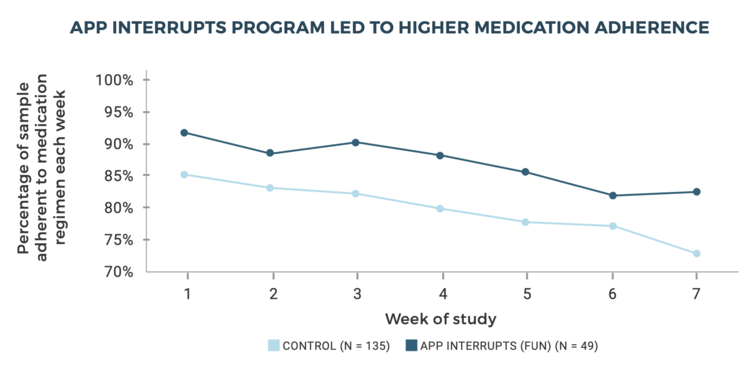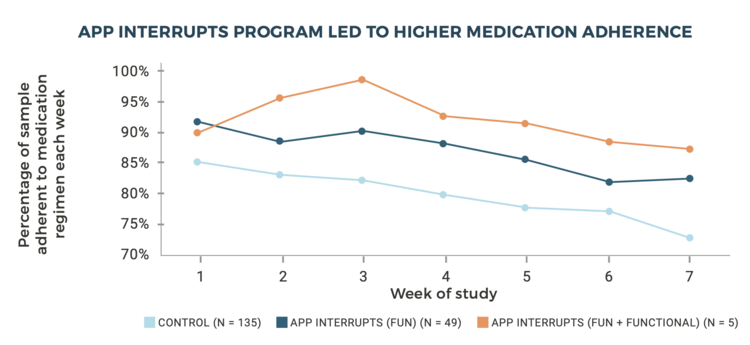Pattern Health has developed and tested a variety of behavioral strategies to increase user engagement and adherence to these programs in collaboration with Dan Ariely’s Center for Advanced Hindsight at Duke University, including the following case study.

We hypothesized that participants who set a commitment device with consequences for failure would be more adherent to their medication regimen than those who did not. The specific commitment device that we tested was a daily consequence for missing a medication dose: if participants missed a dose of their “medication” (which, in this case was the foul-tasting multivitamin Poly-vi-sol with Iron), they would lose access to the apps on their smartphone for the remainder of the day.
Participants with Android smartphones were randomized to use the App Interrupts commitment device program or to a no-intervention control in the Pattern Health mobile application. Those assigned to the App Interrupts condition were given a choice: they could only block their “fun” apps (such as games, video, social networking apps and music), or could opt in to raise the stakes to also include their “functional” apps (such as maps, browsers and email). All participants downloaded the Pattern Health mobile application and were asked to track each time they took their medication through the app.
We found that the group of participants assigned to use the App Interrupts program were more adherent to their medication regimen over the course of the study than participants who did not use the App Interrupts program.

This effect on adherence was even more pronounced among participants who opted in to additionally block their “functional” apps.

The App Interrupts condition was 8% more adherent on average to their medication regimen (and as much as 11%) than the control group. But the implications of this research extend beyond medication adherence. If we can use commitment devices to help people stick to their health goals, we can impact a wide variety of health behaviors, from exercise to disease management.